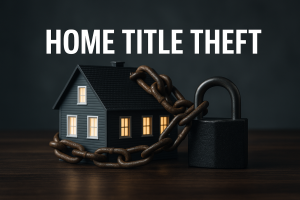For most of us, cars are one of our top expenses. Typically, cars are the number two expense after housing. Figuring out how to minimize vehicle costs will go a long way toward getting ahead financially. Keeping repairs under control can help you get extra years out of your vehicle without breaking the bank.
Buying a reliable vehicle is the best way to control repair costs. It’s amazing how much reliability varies. Use tools such as Consumer Reports online (or get it for free at your local library) and do some research on vehicle reliability before you buy. Getting a more reliable vehicle is crucial to keeping costs down going forward.
When it comes to repairs, it’s important to go somewhere you can trust. That can be tough. Word of mouth can be a good way to find the reputable repair shops. Ask your friends and coworkers where they take their cars. Give some different places a try until you find the right fit. You will quickly figure out who is honest and reliable, and who is trying to take advantage.
Once you find the top three shops you like, it’s critical for you to get multiple quotes every time to make sure you are getting a fair deal. One place might have the best value for some repairs, but not for others. Often you can check prices by just calling (or emailing) a few shops and ask them what they charge for that type of repair. You can evaluate your decision based on the cost and the lead time to make the repair.
For example, my son’s 2000 Honda Civic recently had a catalytic converter that rusted out. We contacted the dealer and they quoted $2,000, saying the part was very expensive. Next, I tried our local independent shop and they quoted $620. Finally, I contacted a third independent shop based on a referral from a friend at work and they quoted me $350. The shop at $350 did the work. They did it right away and did a great job. What a difference! Had we taken it to the first place we would have taken a big loss.
Make it a habit to check prices, even if you had the work done and you are checking after the fact. It hurts a little when you find a place that would have done it for less, but the more information you have, the better position you will be in for the next repair. The one thing we all know for sure is that there will be more repair and maintenance costs down the road.
You should also check the internet and find out the typical repair cost by typing in your year, make and model and the repair in a google search. That will be another reference point.
Also be sure to follow the maintenance schedule in your owners’ manual. Don’t take short cuts! You must be diligent with this if you are going to save money long term. Saving a few bucks now by not doing timely maintenance (such as inspections and oil changes) will cost you much more later when something breaks that would not have if you had kept up on maintenance. For basic maintenance like oil changes, tire rotations and brake inspections, find the best deal at your local Walmart store or an independent shop. Avoid the fast lube places as they are often twice the cost. If you are able to do maintenance or repairs yourself, you will of course save the most money. Youtube is a fantastic resource to quickly learn how to do basic repairs for your exact vehicle make and model.
One of the most difficult decisions is when to ditch your car. This is often a tough call. Sometimes it’s an easy decision because there is a big repair that just doesn’t make sense given the age of the vehicle. Other times you get too many repetitive repairs and you realize the trend is not good. One rule of thumb is that when a repair approaches the car’s value you should consider getting rid of the car.
So, the big takeaways are as follows:
- Take some time to research and buy a reliable vehicle to give you the best probability of lower repairs down the road
- Ask around and try different places in order to find the honest and reliable shops
- Always get multiple quotes for every repair to understand the pricing and get the best deal
- Stay on top of preventive maintenance to prolong the life of your vehicle and reduce the risk of significant repairs
- When repairs become significant or start to approach the car’s value, it’s time to consider ditching the vehicle
By following these guidelines you can keep your vehicle costs in check and reap significant savings that you can use for other more important areas of your life!



